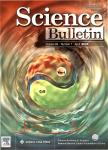Modeling the impact of Australian Plate drift on Southern Hemisphere climate and environment
Modeling the impact of Australian Plate drift on Southern Hemisphere climate and environment作者机构:Nansen-Zhu International Research Center Institute of Atmospheric Physics Chinese Academy of Sciences Beijing China Graduate School of the Chinese Academy of Sciences Beijing China Institute of Climate and Environment Chinese Academy of Meteorological Sciences Beijing China Laboratory of Marine Geology Tongji University Shanghai China Department of Atmospheric Sciences Nanjing Institute of Meteorology Nanjing China
出 版 物:《Chinese Science Bulletin》 (CHINESE SCIENCE BULLETIN)
年 卷 期:2005年第50卷第14期
页 面:1495-1502页
核心收录:
学科分类:07[理学] 070601[理学-气象学] 0706[理学-大气科学]
基 金:supported jointly by the National Natural Science Foundation of China (Grant Nos.40231011 and 40125014) the National Key Basic Research Project of China(Grant No.G2000078502)
摘 要:Using a global atmosphere-ocean coupled model with the present-day and 14 MaB.P. oceanic topogra- phy respectively, two experiments are implemented to inves- tigate the effect of different locations of Australian Plate on the atmospheric circulation in middle-high latitudes of the Southern Hemisphere. The results show that when Austra- lian Plate lay south at 14 MaB.P., both anticyclone circula- tions in the subtropical oceans and cyclone circulation around 60°-70°S are strengthened. Subtropical highs and circumpolar low pressure appear stronger, which results in much stronger Antarctic Oscillation and shorter period of Antarctic Oscillation Index (AOI) at 14 MaB.P. The rainfall and the surface air temperature also change correspondingly. The precipitation decreases around 40°S and increases around 60°-70°S, and the surface air temperature rises in high latitudes of the South Pacific and descends over the Weddell Sea and its north side. Besides, due to the changes of the temperatures and winds, Antarctic sea ice coverage also changes with its increasing in the Ross Sea and its west re- gions and decreasing in the Weddell Sea.



